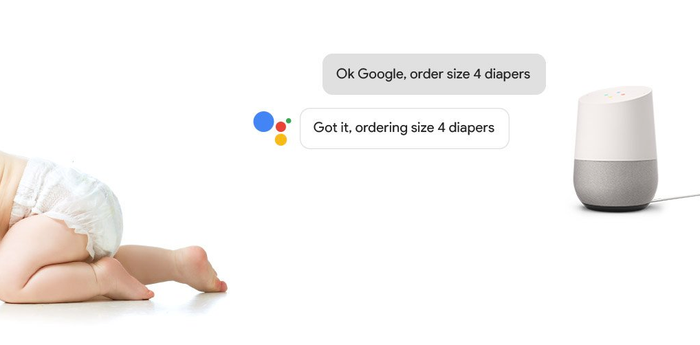Google wins first battle in the smart home war
Google has made the first step towards making some serious cash in the smart home space after announcing a partnership with Walmart, will enable voice shopping through Google Assistant.
August 23, 2017

Google has made the first step towards making some serious cash in the smart home space after announcing a partnership with Walmart, will enable voice shopping through Google Assistant.
The partnership will build on existing relationships with outlets such as Costco and Target, but considering the size and scale of Walmart, this is an entirely different beast. In short, Google Assistant users will be able to shout out to their assistant, whether it would be on a Google Home smart speaker or through their phones, to build a shopping list.
And taking it one step further, if you sign up to Google Express, the shopping will be delivered to your home free-of-charge, assuming you meet the minimum price set out by the stores. Once you meet the minimum requirement, you’ll be prodded towards checkout and organizing a delivery time.
It’s a useful little idea, which makes the Google Assistant a practical tool, as opposed to a gimmick which allows you to turn your lights on without getting up or find out what the weather is like without looking out the window.
As long as you’re within earshot of Google Assistant you can build your shopping list throughout the week. If you’re in the shower and realize your running out of shampoo, just shout. Or if you only have a bit of cereal left, shout. Your correspondent is constantly forgetting little items like this, so it does make sense. The assistant also remembers preferences from previous shops as well. Google Assistant will let you know which size and type you previously ordered from Walmart.

Now don’t think that this is going to be a feature which is exclusively limited to Google. All of the other smart home assistants will be doing this before too long because it is a very good way to make money. Just like the search engine, Google will be aiming to monetize partnerships not the user directly. It’s access to the consumer, and although financials have not been announced, you can imagine Google will be getting some sort of kick back of every completed shopping experience.
This is the power of the smart home. Like Google’s search engine, or Facebook’s social media platform, its owning access to the consumer. The winner of the smart home war won’t be the one with the best speaker, there are brands who can do it better than Google and Amazon, but the one who has the most intuitive, engaging and useful personal assistant. The one which can help with the shopping, or refer you to the best local pizza place, or book flights for you. These relationships can be monetized very effectively.
Doing your weekly shop online has never really been that popular. Yes, there are people who do it, but your correspondent can’t imagine that many. The difference here is that the Google Express offering will be able to do it at a much larger scale. Online deliveries for a store like Sainsbury’s might be difficult as customers will be quite spread out meaning very broad delivery windows and inconvenience.
For Google Express, one delivery driver could theoretically manage deliveries for dozens of different outlets in a condensed radius. Google Express currently has partnerships with Target, Costco, Kohl’s, Bed Bath & Beyond, PetSmart, Staples, Toys R Us, Walgreens, and many others across a variety of verticals. The economies of scale are working in favour of the search giant here; this could mean more specific and flexible delivery times, should demand be high enough.
Prior to the mass penetration of the internet, it would have been unthinkable to do your clothes shopping online. Why would you buy something when you couldn’t try it on? However, mind sets changed and it is the primary means of shopping for many people. Google’s search advertising business certainly capitalized on this.
It won’t be too long before doing your weekly shop online and the voice user interface are normalized. And whoever wins the smart home game will make serious cash out of referrals and third party relationships.

About the Author
You May Also Like


.png?width=300&auto=webp&quality=80&disable=upscale)







.png?width=300&auto=webp&quality=80&disable=upscale)


_1.jpg?width=300&auto=webp&quality=80&disable=upscale)